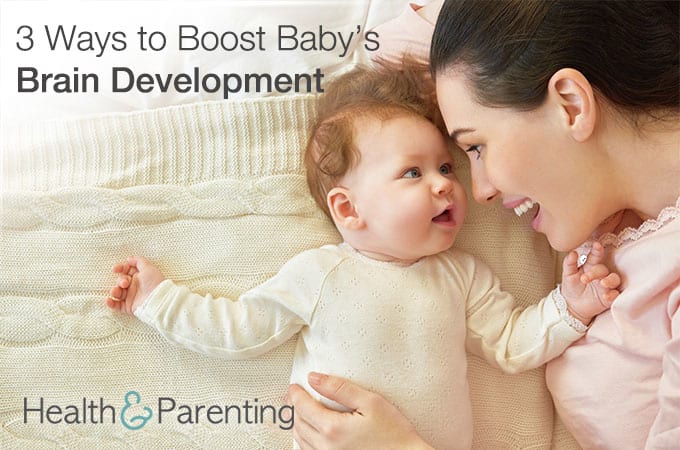We all want to raise smart babies. We want our little ones to grow and thrive and to have all the best opportunities available to them—we want them to reach their full potential. And the good news is, there is plenty you can do in those early months of parenthood that can help your little ones to get there!
No, that doesn’t mean popping in a Baby Einstein video and walking away—though, those videos are enthralling to most kids! Mostly, it means engaging and encouraging.
Your baby’s first year of life will be one of the biggest for brain development. During this time, their understanding of the world around them is growing at an unprecedented rate, and their little brains are making connections all the time. Here’s how you can help:
- Chat Away: Really and truly, talking to your baby is one of the best ways to assist with brain development. Narrate what’s happening as you go about your day, sticking to simple phrases like, “And now we’re going to make dinner. Mommy is going to pour the water in the pot. Daddy is going to turn on the stove. Careful, we don’t touch, it’s hot!” Even if you don’t feel like your baby understands what you are saying, the more you talk, the more he or she will pick up. Don’t just stick to talking though; sing to your baby as well! Even if it’s just made up songs you compose your narrations with. Those variations in tone will help your little one to pick up on new words and make new connections along the way!
- Play: Kids and babies often learn through playing, and getting down on the floor to play with your baby can be a great way to help with brain development. Peek-a-boo, for instance, is excellent for both brain development and your child’s understanding of object permanence. Rolling a ball back and forth, or stacking blocks, or simply using a doll to play pretend can all boost that development as well.
- Engage: Make eye contact with your baby. Point to new and exciting things. Provide new textures to touch and feel. Have “conversations” by talking and then pausing to listen as your baby babbles back. Hold your baby and dance to music. Teach him or her sign language. Smile. Laugh. Be silly. The more your engage with your baby, the more he or she will learn how to respond and engage back—and those connections can be crucial for brain development.
Written by Leah Campbell, infertility advocate, adoptive mama, writer and editor. Find me @sifinalaska on Twitter.
This information is not intended to replace the advice of a trained medical doctor. Health & Parenting Ltd disclaims any liability for the decisions you make based on this information, which is provided to you on a general informational basis only and not as a substitute for personalized medical advice. All contents copyright Health & Parenting Ltd 2016. All rights reserved.










